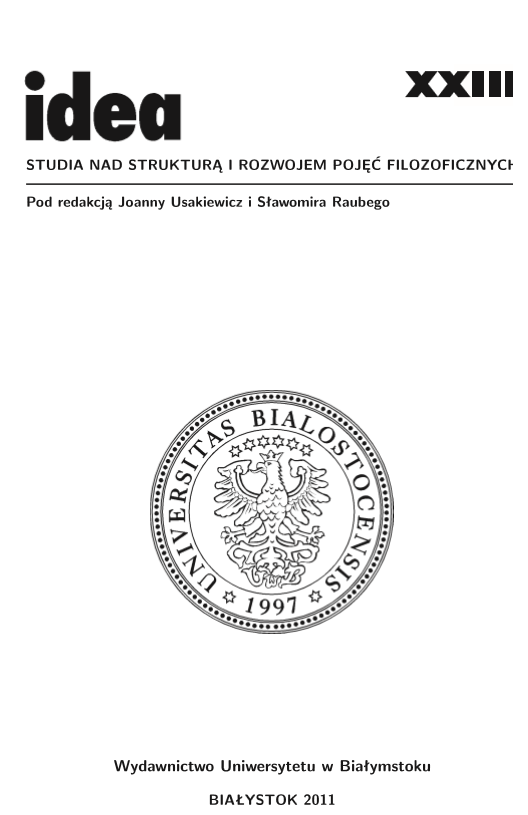Egzystencjalizm jako filozofia podmiotu
Existentialism as the philosophy of the subject
Author(s): Dorota BajerSubject(s): Ethics / Practical Philosophy, Recent History (1900 till today), Existentialism, Philosophy of Religion
Published by: Wydawnictwo Uniwersytetu w Białymstoku
Summary/Abstract: Existentialism is an anti-system philosophy, since it concentrates on the subjectively experienced, individual existence of a subject. Existentialists focus on such aspects of a human existence as freedom, loneliness, finiteness and a desire for authenticity. In the 20th century existentialism it is possible to distinguish two trends: theistic and atheistic. For existentialists of both trends, a man is a dynamic and creative subject, subjectively experiencing the existence in the world. This existence is completely different from the existence of things and animals. For the representatives of the theistic trend, he is a dualist individual who stands out mainly due to his spirituality, ability to transcend towards the infinity, towards God. To the representatives of the atheist faction, on the other hand, he appears to be an immanent, finite in time and closed in the physical mortal life subject. The existentialists of both trends emphasise – though understanding it in various ways – the need for an authentic life and the axiological dimension of the human existence in the world, however, differently comprehending the origins and the way ethical values exist. Theistic and atheistic existentialism is an objection against the cultural mechanisms which degrade and depersonalize a man, it is a defence of human freedom and subjectivity against the unification and reification which threaten the man in the consumer civilization.
Journal: Idea. Studia nad strukturą i rozwojem pojęć filozoficznych
- Issue Year: 1/2011
- Issue No: XXIII
- Page Range: 115-134
- Page Count: 20
- Language: Polish

